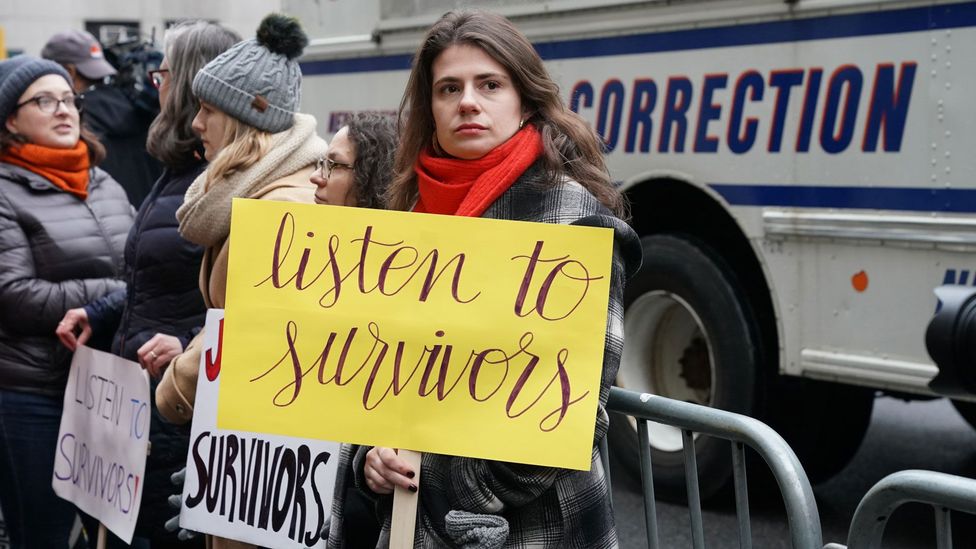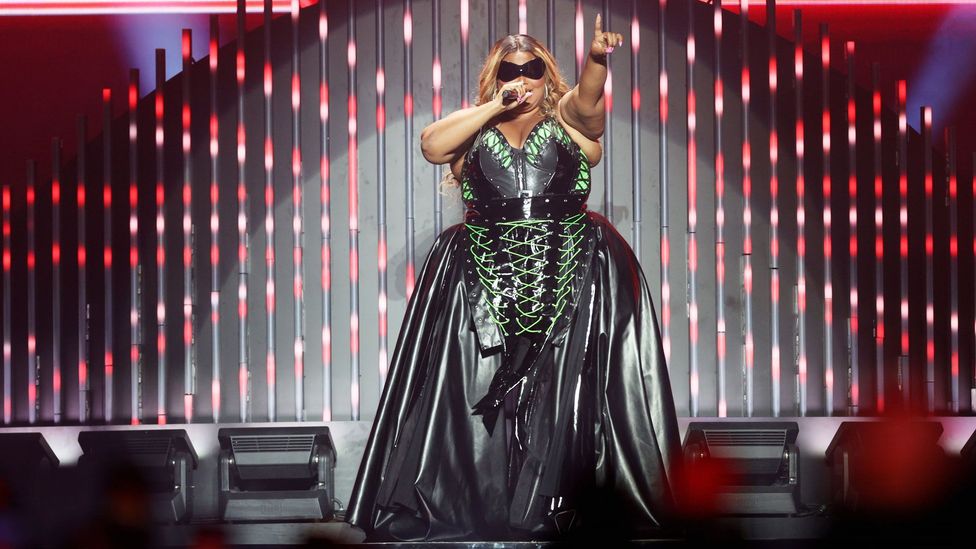The allegations were shocking, and the backlash was swift.
On 2 August, the musician Lizzo, widely known for messages of body-positivity and self-love, was named in a lawsuit that accused her of creating a hostile work environment. Three former dancers say the pop star subjected them to sexual and racial discrimination, fat shaming and physical and emotional abuse.
A day after the allegations, Lizzo, whose legal name is Melissa Viviane Jefferson, issued a statement on Instagram denying the claims. She called the stories “unbelievable”, “too outrageous” and “sensationalized”.
Workplace harassment comes in many forms, and data shows it proliferates around the globe. According to a 2021 International Labour Organization (ILO) survey of 75,000 workers in 121 countries and territories, nearly a quarter of respondents across industries report they have experienced violence and harassment on the job.
And although working in entertainment may be a dream for many people, this kind of non-traditional gig – such as touring with a performer, appearing in a reality television show or being part of a theatre cast – can create a set of conditions rife with the potential for workplace harassment.
A 2020 policy brief from the ILO indicated the entertainment industry’s unique organisational structure makes preventing and addressing harassment, workplace abuse and gender inequality particularly difficult – even after the Me Too movement exposed rampant abuse in Hollywood.
‘The passion gap’
The dancers bringing the suit against Lizzo – Arianna Davis, Crystal Williams and Noelle Rodriguez – have alleged they were “exposed to an overtly sexual atmosphere that permeated their workplace”.
Davis, who met Lizzo while competing on the singer’s Amazon Prime reality show, Lizzo’s Watch Out for the Big Grrrls, and was employed by her in 2021, alleges that Lizzo forced her to touch a burlesque performer’s breast, and asked personal questions about her weight gain. “Plaintiffs were aghast with how little regard Lizzo showed for the bodily autonomy of her employees and those around her,” the complaint details.

Even in the wake of movements like Me Too, workplace harassment and abuse can be difficult to prevent in the entertainment industry (Credit: Getty Images)
Although Lizzo’s case is still pending, the very public nature of the complaints, say experts, has forced an important conversation about work in non-traditional settings, particularly in the arts.
“So many performers have heard about how lucky they are, how so many people want to do what they are doing and that they are replaceable,” says David E. Shane, director of programs at A.R.T./New York, an organisation that provides logistical and financial services to non-profit theatres across New York.
He says that workers in creative industries often choose to overlook things like poor working environments, excessive hours and inappropriate behaviour because they believe it’s the nature of the business. He calls this mindset "the passion gap" which is the delta between what a worker would normally think was acceptable in a professional environment versus what they are willing to accept in a creative position. He says they might think, ‘If I say no, I’ll be labelled as difficult, and I won’t get another opportunity’.”
This chimes with findings from the Hollywood Commission, a non-profit advocacy organisation for workers in the entertainment industry. In 2019, the group conducted a survey of 9,630 workers, and found only 35% of respondents believed that a workplace harasser would be held accountable for misconduct. Additionally, 41% of respondents said they wouldn’t report gender harassment or sexual harassment at work because they feared retaliation. The findings, report the Hollywood Commission, point to an industry that has an “entrenched and endemic” issue with workplace harassment.
Natalie Whittingham Burrell, a US-based criminal defence attorney and host of a YouTube show about celebrity scandals and lawsuits, adds that performers often expect after-hours mingling to come with the territory in their line of work. This, she says, can affect their perception of what rises to the level of harassment or abuse.
“Networking is a tradition in the entertainment industry, and it’s normalized as part of the job,” she says. “Leaders in these situations need to realize that they are the boss, even if professional and personal boundaries are blurred.”
So many performers have heard about how lucky they are, how so many people want to do what they are doing and that they are replaceable – David Shane
With or without written regulations or a clear corporate structure, she says the responsibility rests with the person whose name is on the marquee. “They need to understand that the people who work for them will often do something they don’t want to do because they fear they’ll lose their jobs if they don’t.”
A ‘logistically unique’ workforce
Although the creative sector may lay out a specifically difficult foundation for experiencing, recognising and reporting sexual harassment, experts say power and privilege always play a role in workplace dynamics, no matter the industry.
And, add Shane and Whittingham Burrell, no worker should feel unsafe or bullied on the job.
Shane, who organised A.R.T./New York's sexual harassment training, feels rules need to be put in place to safeguard workers and establish best practices. He says an ongoing dialogue about what constitutes harassment, bias and abuse is important for all industries, especially those whose guardrails may be fuzzier than others, such as the creative arts.
“Working in the performing arts is unique,” says Shane. “But just because you might have to share a dressing room or hotel room with a co-worker or boss doesn’t mean that harassment should be allowed to continue.”
Most importantly, he says, “We need to normalise saying no, normalise affirmative consent, so that when someone says yes it actually means something.” In other words, workers of all stripes should be allowed to create and express clear boundaries without fear they’ll be fired.
Yet Shane remains optimistic workers can make progress, especially as allegations of lesser-known forms of workplace harassment come to light. “People working in performing arts are creative people. I believe they can come up with creative solutions.”
